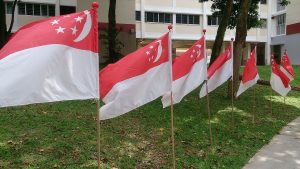Mr. Paul Meyer’s article, “Singapore’s first election under the fake news law,” alleged that the Protection from Online Falsehoods and Manipulation Act (POFMA) gives “considerable leeway” to determine what a falsehood is, and that POFMA is wielded by the government to target politically-oriented voices on the internet over “modest” inaccuracies.
This is untrue. What is fact and opinion are defined by well‑established jurisprudence. For POFMA to apply, the statement must be a false statement of fact, and must affect public interest. It cannot be applied to opinions nor criticisms of the government that are based on facts. As a further safeguard, the government’s determination of falsehood can be challenged in court, in an expedited process, with reduced court fees for individuals. Also, during an election period, ministers’ powers under POFMA are extinguished, and are instead exercised by senior civil servants.
Contrary to Meyer’s characterization, the falsehoods corrected thus far were neither trivial nor minor; they concerned issues of importance, relevance and interest to Singaporeans. Failing to deal decisively with such falsehoods will erode, even undermine, public trust in our institutions, with serious consequences for our democracy.
Meyer also suggests that POFMA’s Code of Practice for Transparency of Online Political Advertisements led to Google’s decision to stop running political advertisements in Singapore. This is spurious. Google’s decision, which it has also adopted in Canada and Taiwan, applies equally to all political parties in Singapore, who remain free to use the digital advertising services of other intermediaries, such as Facebook. This was evident during Singapore’s recent general elections.
We have seen the consequences of falsehoods, including slow-drip falsehoods, circulating unchecked in societies around the world, and have taken a course to guard against them. With POFMA, we hold the principle that public discourse should be built on an infrastructure of facts, not false information or fear mongering. Notably, during Singapore’s recent general elections, the secretary general of Singapore’s biggest opposition party and soon-to-be formally appointed leader of the opposition also echoed this same principle when interviewed by the media, and noted that POFMA did not pose any impediment to his party’s campaign.
It is unfortunate that Meyer has instead chosen to favor the unchecked market of information, without offering any solution to the real and serious problems posed by online falsehoods.
Ashok Kumar Mirpuri is Singapore’s Ambassador to the United States.

































